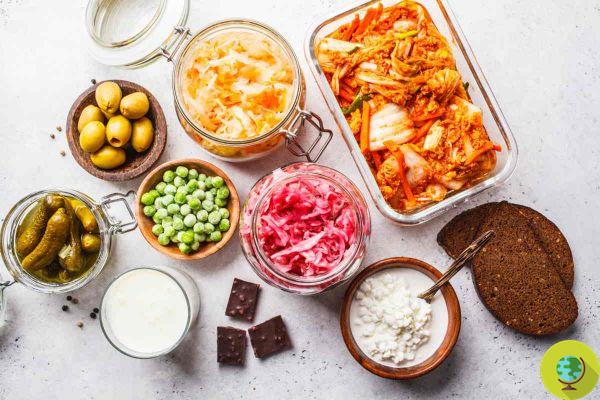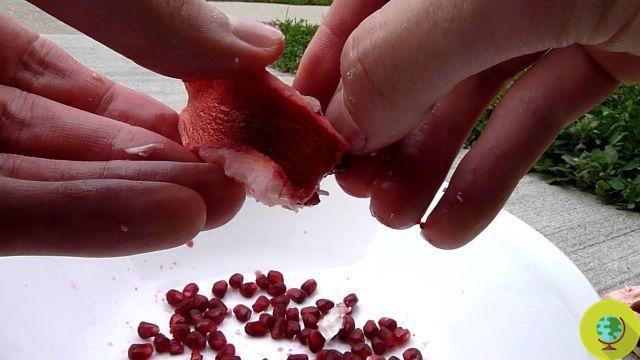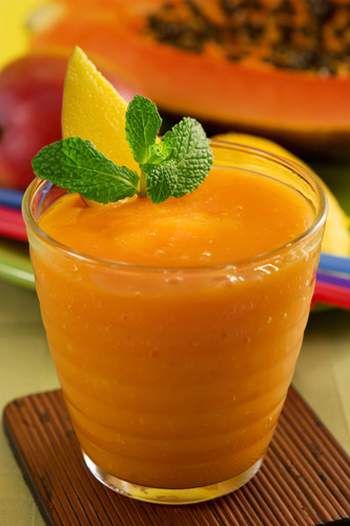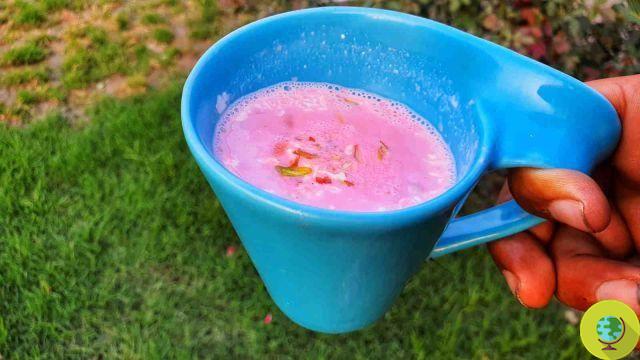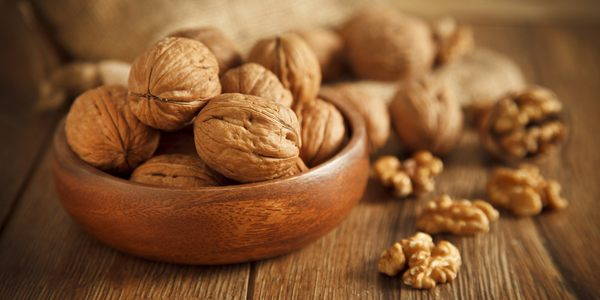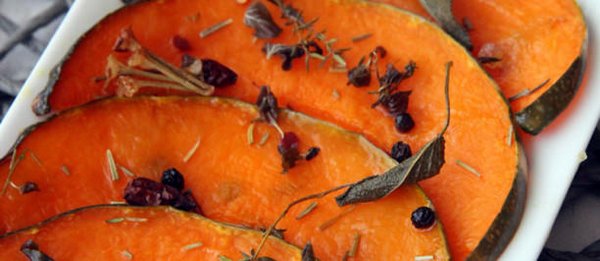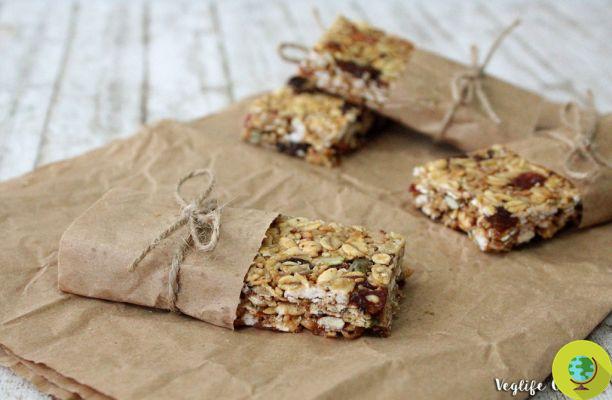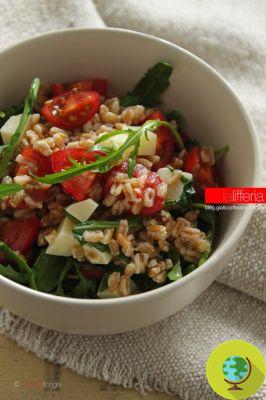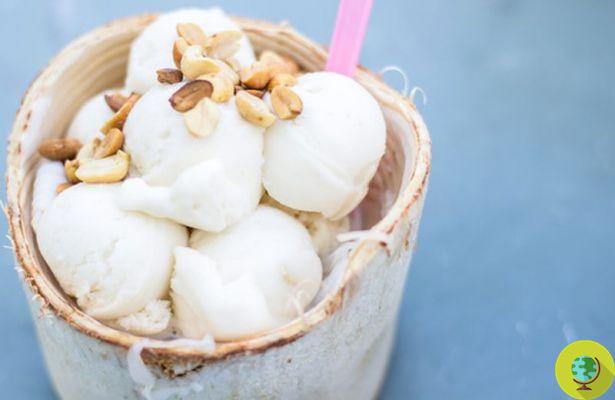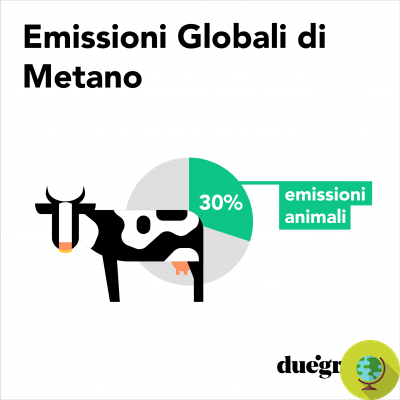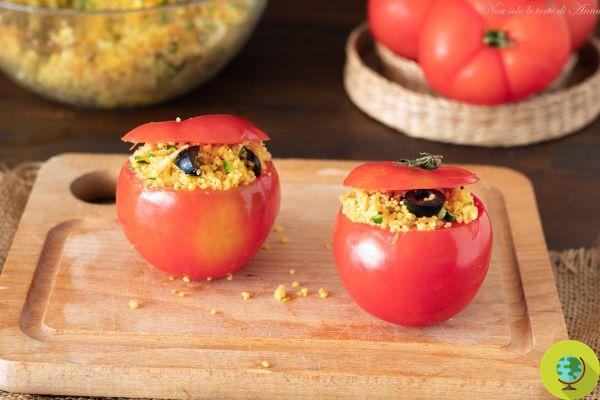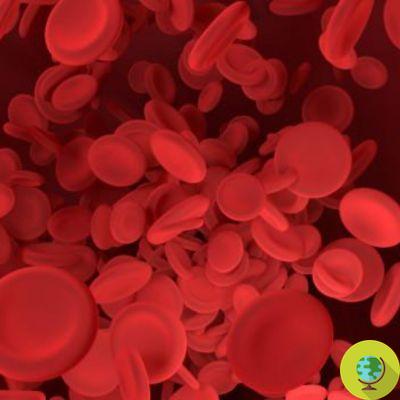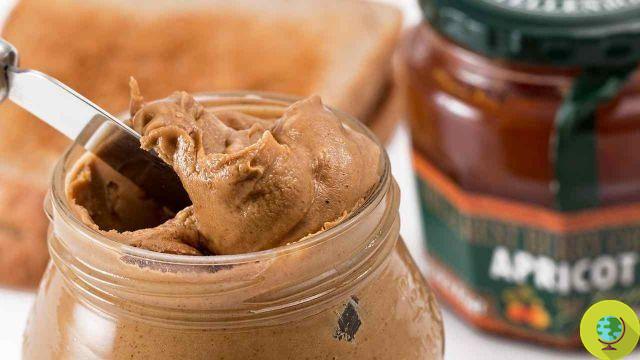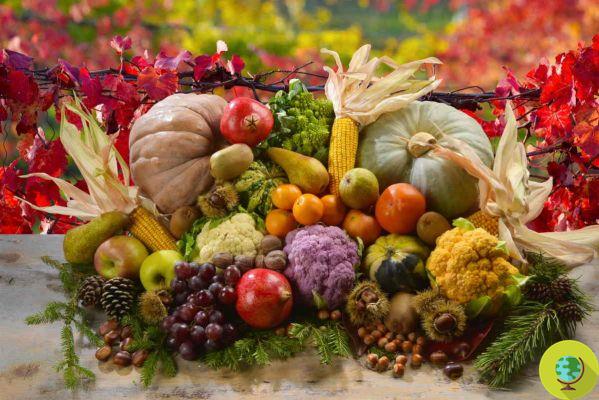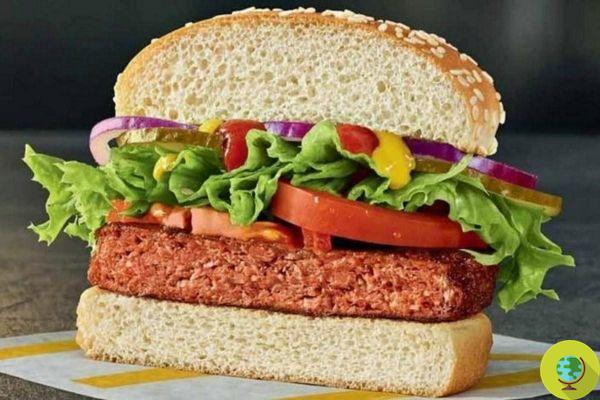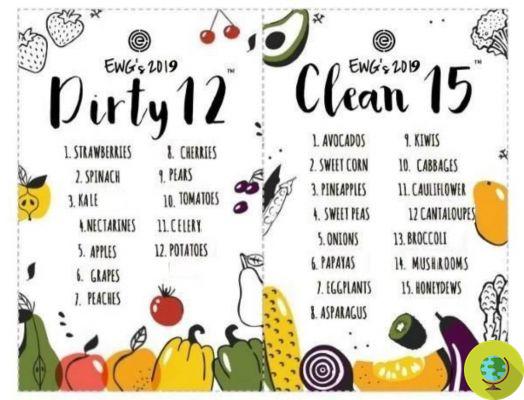There are some foods, such as bananas, cabbage, avocados, onions, kiwis or asparagus that do not need to be bought organic as they do not absorb much pesticides or, in any case, are peeled before being consumed. Other foods, on the other hand, since they are more subject to the use of pesticides or medicines for their production, should be purchased only if they are of certified organic origin or in any case safe. Here are a few.
Don't store avocado like this: it's dangerous
Give your preference to Organic products it means safeguarding one's organism from the accumulation of traces of pesticides e toxins over time, through food choices that include food for the production of which no chemicals have been used harmful to humans. Choosing fruit, vegetables, legumes, cereals and their derivatives from organic farming means having the certainty of their production no fertilizers or herbicides have been used or other potentially toxic chemicals. A similar argument applies to meat, eggs, milk and derivatives.
Their biological origin guarantees that no antibiotics were given to farm animals or growth promoting hormones. Unfortunately, this does not mean that these animals are not destined for an early death or slaughter, but the choice of meat and animal derivatives of organic origin by those who are not vegetarians or vegans could in any case represent a first step towards more informed food choices.
There are some foods, such as bananas, cabbage, avocado, onions, kiwifruit or asparagus that it is not necessary to buy them organic as they do not absorb much pesticides or, in any case, are peeled before being consumed. Other foods, on the other hand, since they are more subject to the use of pesticides or medicines for their production, should be purchased only if they are of certified organic origin or in any case safe. Here are a few.

Index
Bakery products and snacks
We refer to crackers, biscuits, snacks, biscuits, rusks and other baked goods usually consumed as a snack or breakfast, which you do not have time to prepare at home by choosing organic ingredients. The rule also applies to other foods consumed daily, such as pasta or rice. In any packaged product that is not certified as organic it is possible that there are traces, albeit minimal, of pesticides, which, however, could gradually accumulate in the body, certainly not a cure-all for health. If possible, always try to opt for healthy snacks and for quality products.
Baby food
Baby food, yogurt, cheese, fruit juices and any other food to be used for feeding the little ones should preferably be chosen of biological origin, in order to preserve the delicate digestive system of children from an early accumulation of toxins and harmful substances, such as traces of pesticides which unfortunately remain on fruit and vegetables, but also in non-organic cereals, flours and dairy products. Baby food can be replaced by homemade natural baby food that the pediatrician will certainly be able to advise you.
Green leafy vegetables
Thinking about a healthy food, it might happen that you recall a nice dish of fresh salad. Beware of its origin though. Salads, such as the lettuce, and other green leafy vegetables, such as spinach or chard are among the crops to which intensive agriculture dedicates the greater use of pesticides, in order to defeat attacks by insects and parasites. The solution is to make sure of choose organic salads and green leafy vegetables, or cultivate them in your own garden without the use of chemicals.
Peppers and tomatoes
Peppers are among the vegetables most at risk of suffer attacks from insects and parasites. The pesticides used in their cultivation are easily absorbed by their peel, which unfortunately we usually consume in the preparation of various dishes based on these ingredients. For the same reason it would be good to pay attention to the choice of tomatoes that we will not consume peeled tomatoes. Pesticides unfortunately they can easily get past the thin peels of peppers and tomatoes, thus giving rise to the need to prefer them if they come from organic farming, since washing them carefully may not be enough to protect us from any toxins.
Potatoes
Potatoes are probably the tuber which, according to the dictates of conventional and intensive agriculture, requires more struggle against all those microorganisms that could jeopardize the possibility of collection. Among them, the most frightening farmers are mushrooms. This explains the wide use of farmers afungicides, mindful of the epidemic that in the nineteenth century in Ireland caused a real famine due to the complete ruin of the national potato crops. Better to spend a little more e choose organic, safe and residue-free potatoes chemicals of any kind.
Pesche
According l 'Environment Working Group United States, peaches are among the fruits that are able to retain the highest concentration of pesticides. Therefore, it would not be enough to wash them carefully and peel them to get away from them. Eliminating the peel also means deprive yourself of the part of the fruit that contains the highest concentration of beneficial nutrients. Also in this case, it is therefore advisable to prefer fruits of organic origin or openly not treated with pesticides, if you know the producers personally. This preference should in particular also be extended to apples, strawberries, cherries and grapes.
Coffee
The coffee beans used to give rise to one of the most consumed drinks in our country in every part of the day probably come from plantations located in foreign countries in which the regulations relating to the use of pesticides are not always taken into account, if they are present. . The coffee plants and the beans that are collected from them are found ad absorb disproportionate amounts of chemicals, unless they come from crops that have adhered to organic farming methods. The ideal choice should fall on organic and fair-trade coffee, which can guarantee the wholesomeness of the drink and the fair treatment of workers used for the harvesting of the beans and the subsequent stages of production.
eggs
Our advice for those who consume eggs is to choose them exclusively if equipped with organic certification (code 0) or if they come from farms for which it is certain that the hens can roam free and are fed with natural feed and whose owners are personally known. THE pesticides contained in industrial feed intended for hens, they can pass to eggs in minimal part, as well as the medicines administered to them in intensive farms, in order to avoid the spread of diseases; not to mention the terrible conditions in which they are forced to live for the sole purpose of producing as many eggs as possible
Milk and dairy products
Similar advice applies to those who consume milk and dairy products, including yogurt and cheese. Given the treatment reserved for animals within the intensive breeding, with administration of antibiotics and medicines and industrial feed, it is legitimate to doubt the quality of dairy products obtained from the processing of milk which could contain traces of pesticides, hormones and other chemicals that are not really beneficial. With regard to traces of pesticides and toxic substances, they should be lower in milk and dairy products obtained a starting from animals raised for fodder and to whom no medicinal substances of any kind have been administered.
Beef
Those who have not yet said goodbye to meat, are they really sure of the healthiness of the foods they choose to consume? Beyond the considerations concerning the fact that the vegetable kingdom is perfectly able to offer our body all the proteins it needs thanks to foods such as legumes, cereals and dried fruit (which, among other things, represent an expense cheaper than buying meat), who desires to consume meat, that at least refers to products of certified organic origin, obtained from animals which have not been given hormones or medicines and which have followed their natural diet.
Worried about the increased price of organic products in this time of crisis? Read here how to eat organic and spend little
Marta Albè
Read






